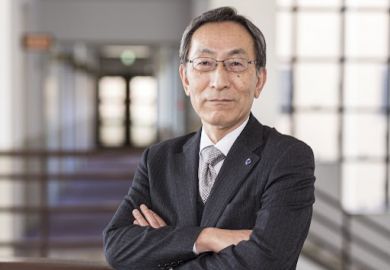An academic thinktank focused on the UK’s post-Brexit relationship with Europe faces an uncertain future, with its public funding not being renewed.
The UK in a Changing Europe (UKICE) had been based at King’s College London since 2014, supported by the Economic and Social Science Research Council (ESRC).
The thinktank had a significant impact on debates about Brexit and the UK’s place in the world. To take one measure of impact, its director, Anand Menon, appeared on the BBC’s Question Time debate show more than any other academic over the past decade.
But in a statement issued on 18 September, Professor Menon – professor of European politics and foreign affairs at King’s – said that ESRC had decided not to continue funding UKICE beyond the end of the current grant next April.
“Clearly, we hoped – and strived – for another outcome,” Professor Menon said.
“As for the future, that is currently uncertain,” he continued. “The work of UKICE, enabling social scientists based for the most part in UK universities to communicate more effectively with non-academic audiences, is a ‘public good’. Consequently, a publicly-funded model worked well, enabling us to focus on the issues that we thought most important, and ensuring that we were both objective and impartial and seen to be so.
“We will of course consider all options to try and preserve the brand.”
Professor Menon argued that over the past decade UKICE had “produced some of the most timely, insightful and prescient analysis of the Brexit process from the referendum, through the tortuous debates in parliament, to the Trade and Cooperation Agreement and up to the current talk of a ‘reset’ under Keir Starmer.
“We have also addressed many key topics related to Brexit, including UK trade, immigration, the changing nature of the UK constitution, the impact of Brexit on health, the evolution of public opinion, as well as the development of the European Union itself. I am incredibly proud of these achievements.”
He added: “Above and beyond the work we have done, I firmly believe that UKICE has had a significant, and hopefully lasting, impact on the relationship between academic social scientists and the ‘real world’.
“Of course, there have long been social scientists who have interacted with audiences beyond academe. But I like to think that those links have become firmer and more ‘normalised’ because of our work, and that politicians, civil servants, journalists, businesses and third-sector organisations are now far more likely to think about working with academics than was the case when we launched.”





